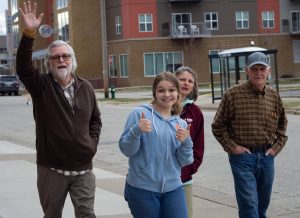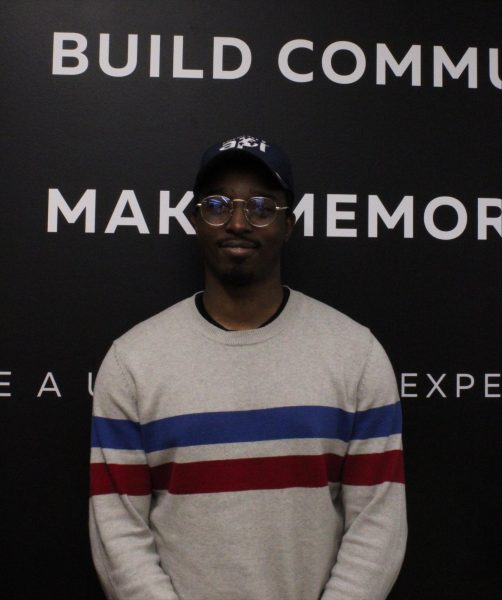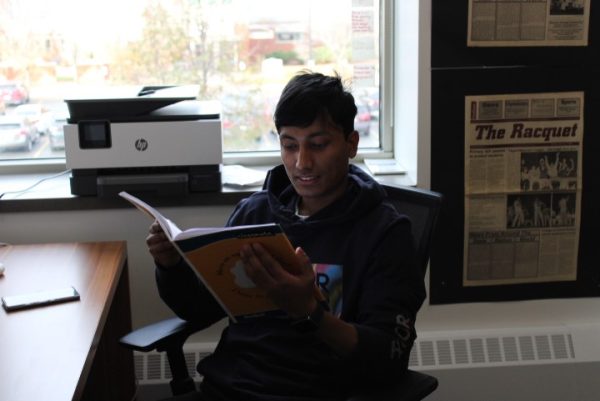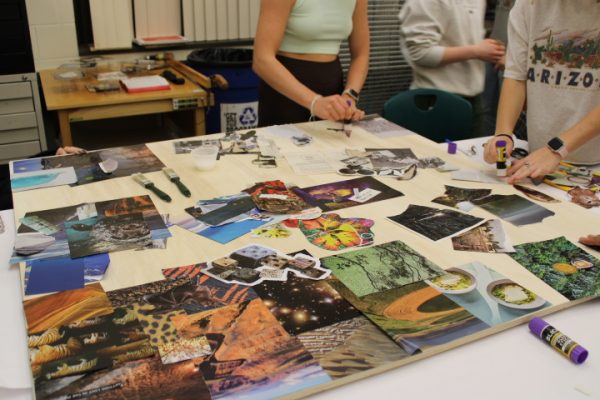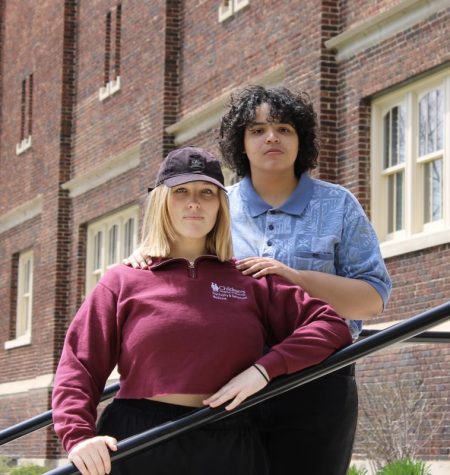Fine Arts students perservere to pursue passions
October 15, 2014
Few understand the time and energy devoted to majoring in the fine arts. UW-L music and theater students talk about their experiences in their programs. There are many degrees available to students interested in the fine arts, including paths for education, performance and administration. The university has two concert bands as well as a marching band open to both majors and non-majors, eight choral groups open to a variety of students and community members, a jazz band and a symphony orchestra. The theater department hosts a summer show, three main-stage plays, two smaller works and a musical each year.
However, not all music students are majors. UW-L student, Derek Schmidtke is majoring in Spanish and Biology and still participates in the Concert Choir on campus. “I was not passionate enough about music to pursue it as a major,” Schmidtke said. However, he also expressed the enjoyment he gets from participating in the vocal ensemble and wanting to keep music a part of his life.
Prospective students must audition to become a major, and certain performance groups require an audition for non-majors as well. Auditions are also required for scholarship consideration. Theater auditions can vary by show. For musicals, both a dance routine and song preparation are required to audition, while auditions for a play might include a monologue preparation or scene reading.Junior musical theater major Erin Gassner commented on the audition process saying, “As I’ve gotten older, they’ve gotten less stressful.”
All majors on campus require dedication and time in order to learn and succeed in that field, but no one goes the extra mile like music and theater students. Not only are they responsible for all academic priorities but must practice and rehearse for sometimes hours at a time. Gassner commented that she enjoys the work she does both behind the scenes and in preparation for performance, but it can be exhausting. Preparing for a performance takes extra care, especially the night before and day-of. Music education major, Meg Mittelstadt said making sure to leave time for adequate sleep and monitoring foods are essential. Gassner said, “I avoid spicy foods and dairy – both aren’t great for your voice if you’re singing. I’ll drink tea or orange juice and take ibuprofen in case of headaches.”
All the extra work aside, often the hardest part of being a fine arts major is gaining the acceptance of those around you. Convincing people that a degree in fine arts is just as valuable and credible can be an exhausting task. It often produces the age-old question of “what are you going to do with a music major?” While some can answer easily, others are after a more challenging perspective. Mittelstadt said she wants to teach elementary music education and felt that she had the support of her loved ones. Gassner did not have the same luck. “It took [my parents] a really long time to understand that working in theatre is not at all like working in a ‘normal’ profession, such as medicine or business. It takes a while for an actor to get on their feet, something I’ve already accepted,” she said.
When asked what she tells people who ask about her choice of major Gassner said, “I’m going to create art. I’m going to create theatre. And I’m going to have a blast.” Regardless of the tiresome schedule, students with a passion for music cannot deny it. It is a huge part of many lives of students on campus and an incredible activity to be a part of.





